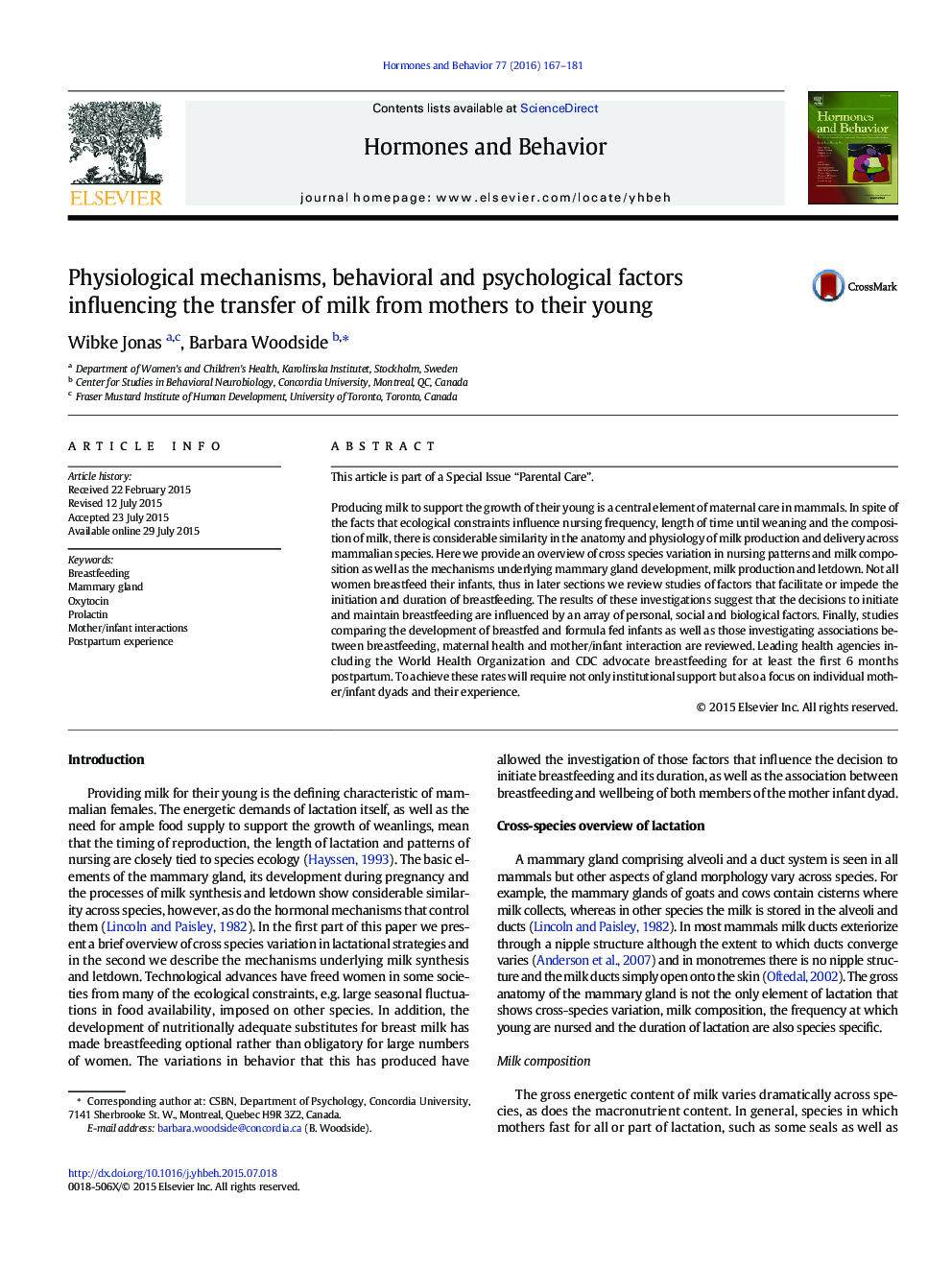| کد مقاله | کد نشریه | سال انتشار | مقاله انگلیسی | نسخه تمام متن |
|---|---|---|---|---|
| 323066 | 540480 | 2016 | 15 صفحه PDF | دانلود رایگان |
• Progesterone and prolactin are critical for mammary gland development in pregnancy.
• Suckling induces synthesis and release of prolactin and oxytocin postpartum.
• Even if not necessary for survival, breastfeeding confers advantages on mother and child.
• Early postpartum experience is important in maintenance of breastfeeding in women.
This article is part of a Special Issue “Parental Care”.Producing milk to support the growth of their young is a central element of maternal care in mammals. In spite of the facts that ecological constraints influence nursing frequency, length of time until weaning and the composition of milk, there is considerable similarity in the anatomy and physiology of milk production and delivery across mammalian species. Here we provide an overview of cross species variation in nursing patterns and milk composition as well as the mechanisms underlying mammary gland development, milk production and letdown. Not all women breastfeed their infants, thus in later sections we review studies of factors that facilitate or impede the initiation and duration of breastfeeding. The results of these investigations suggest that the decisions to initiate and maintain breastfeeding are influenced by an array of personal, social and biological factors. Finally, studies comparing the development of breastfed and formula fed infants as well as those investigating associations between breastfeeding, maternal health and mother/infant interaction are reviewed. Leading health agencies including the World Health Organization and CDC advocate breastfeeding for at least the first 6 months postpartum. To achieve these rates will require not only institutional support but also a focus on individual mother/infant dyads and their experience.
Journal: Hormones and Behavior - Volume 77, January 2016, Pages 167–181
